One thing Ben Roberts Smith said linked him to war crime allegation articles
Ben Roberts-Smith has failed to prove he was defamed in articles alleging he committed war crimes, with a distinctive tattoo on his ribs central to his case.

News
Don't miss out on the headlines from News. Followed categories will be added to My News.
Ben Roberts-Smith claims he was linked to war crime allegations published across multiple newspapers even though he wasn’t named because of a distinctive Spartan tattoo, his towering stature and Victoria Cross glory.
The 44-year-old said all the features pointed to him being the accused soldier known only as “Leonidas”.
During his final moments of being questioned by his own legal team during his mammoth trial, Mr Roberts-Smith told the court about the damage the “whispering campaign” wrought on his mental health, career and family.
Justice Anthony Besanko found some of the imputations of war crimes and murder put forward across six articles by The Sydney Morning Herald, The Age and The Canberra Times were found to be substantially true in delivering his judgment on Thursday.
Justice Besanko officially dismissed the proceedings after finding the articles proved the most serious imputations, while the newspapers made out the defence of contextual truth for the remainder of the untrue imputations.
Justice Besanko found allegations of threats and domestic violence could not be proven, but was “satisfied” the defence of contextual truth had been made out in respect of these untrue imputations.
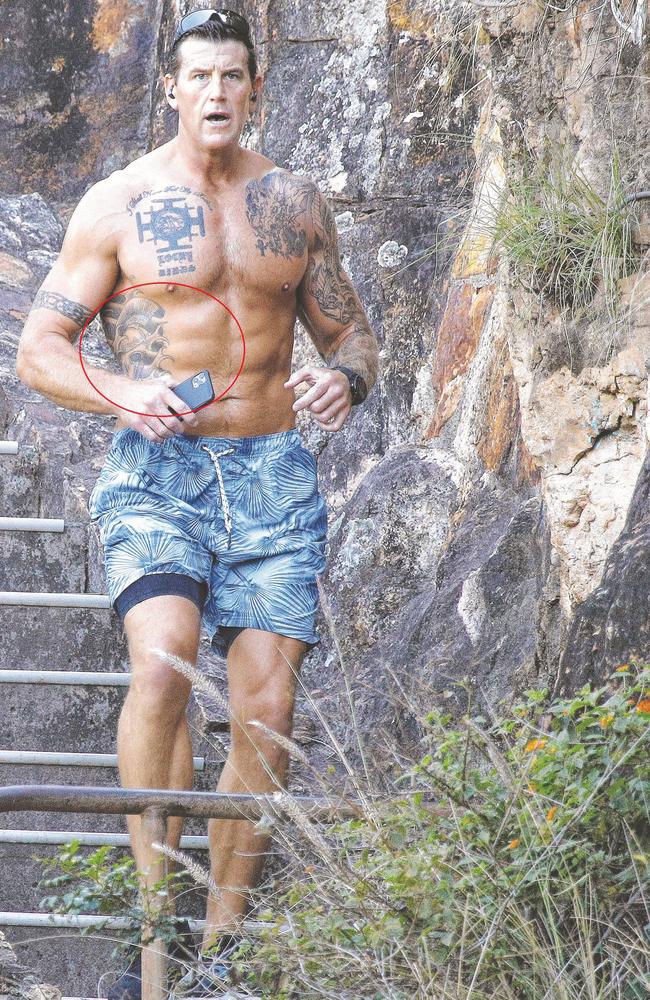
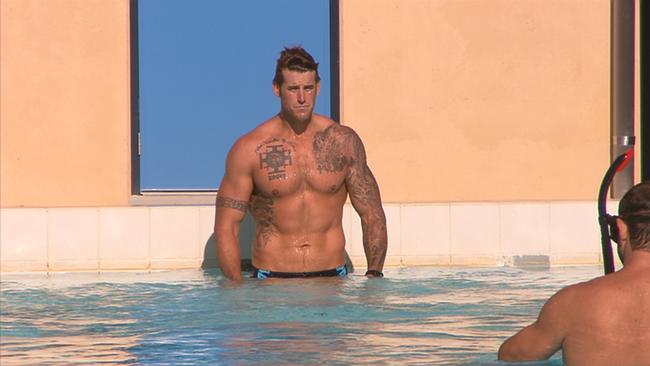
While not every murder allegation was established by the newspapers, the judge found the two key killings had taken place.
Mr Roberts-Smith strongly denied the claims, but the broadcaster successfully defended those parts of the articles as true.
The first article, in June 2018, did not name Mr Roberts-Smith but said a soldier called “Leonidas” kicked a detainee off a cliff and had him executed.
“They make specific comments about the size of the individual, his stature and his links with high levels of the military which would only come with the Victoria Cross,” Mr Roberts-Smith told the court during the trial.
The court heard Mr Roberts-Smith had multiple tattoos including one of a Spartan helmet on his ribs.
Leonidas was a Spartan warrior who, in the film 300, kicked a detainee off a precipice.
Mr Roberts-Smith said calls came quickly with people believing he was the alleged war criminal in the articles, due to the description of the man in question.
During the trial, he told the court he always followed the rules of engagement when killing people in battle.
“I saw things in Afghanistan and did things in Afghanistan – like having to engage adolescents – that I am not proud of,” he said.
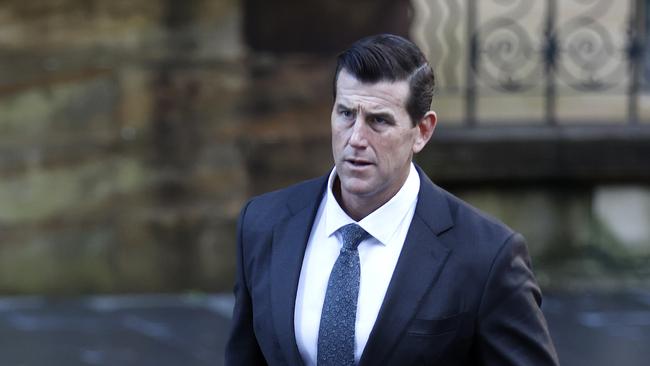
“I live with that.”
Mr Roberts-Smith said he saw the Taliban and allies in the Afghan partner force abuse women and children. But he was powerless to intervene because of the rules of engagement.
“I accept that as a trauma I live with, only to come home to have stories written about me that are so demonstrably false,” he said.
“I have had moments in my life in the last three years when I didn’t think it was worth it,” he said through tears.
When Mr Roberts-Smith was awarded the Victoria Cross for storming machine gun nests, he said, one patrol commander wrote a letter warning he’d become “a tall poppy” and he’d need to prepare for people trying to cut him down.
Years later those attacks took the form of a “whispering campaign”, he told the court, between his enemies in the Australian Defence Force and Nine’s journalists.
He said he asked his ex-wife’s friend to buy him prepaid phones so he could talk to other former soldiers he still trusted about the missions that were at the centre of the war crime allegations.
“I simply did not trust the media were not trying to intercept my communications or gather derogatory information to use against me,” he said.
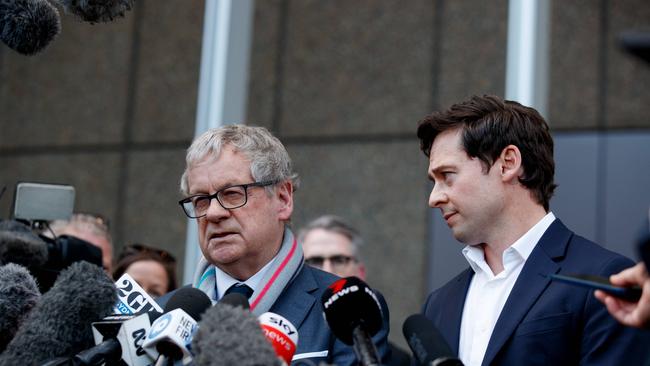
Mr Roberts-Smith said he and the trusted soldiers looked over surveillance images of missions that had been posted to him anonymously in the form of USBs.
He denied Nine’s allegation he had buried USBs containing important evidence in a container in his backyard.
He told the court they’d remained in his marital home and his wife had access to them after they’d separated and he moved out.
Mr Roberts-Smith said he lost three years of his life to rumours and he felt he couldn’t protect his kids when the articles emerged.
“Every day I think about what people are going to do and say to my children,” he told the court during the trial.
“What is the legacy of my family now because of those articles? It crushes my soul because I gave so much to that job. And it’s all lies.”
He said he didn’t know what people thought of him since allegations he physically assaulted his girlfriend at a hotel in Canberra were published by Nine.
“Now I walk down the street,” he said, pausing to compose himself.
“People will look at me and the first thing I think of is ‘they think I’ve hit a woman’.”
Mr Roberts-Smith said he was “betrayed and humiliated” by the allegations.
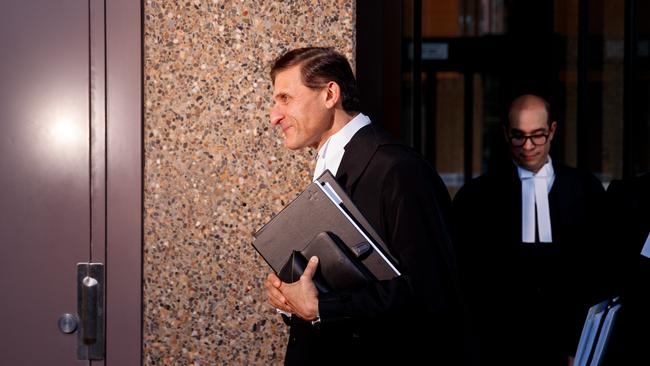
“And I say humiliated because everything I’ve ever cared about was serving my country with distinction and honour – and my friends and my unit.”
Mr Roberts-Smith did not appear in court in person for the judgment, but reportedly was seen soaking up the sunshine in Bali.
Outside court, one of the men who penned the articles Nick McKenzie described Mr Roberts-Smith as being the “Lance Armstrong” of the defence force.
The investigative journalist said the decision would offer some relief to victims in Afghanistan who also gave evidence.
“Ali Jan was a father, a husband,” he said. “He was kicked off a cliff by Ben Roberts-Smith, and was murdered with his participation.
“There is some small justice for him (and) for all the Afghan villagers who stood up in court.”
Journalist Chris Masters, who also wrote the articles, said the outcome was a great relief for media.
“It’s a relief for the media, frankly, we know we’re so often on our knees,” he said.
“It often feels so hard to even do ordinary work, let alone work as difficult as this.”
Originally published as One thing Ben Roberts Smith said linked him to war crime allegation articles



